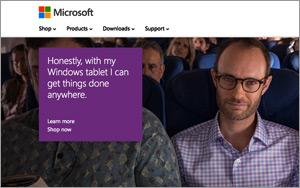
Reputation
management counts when it comes to businesses. A study from Forrester Research released Monday suggests that Microsoft's innovative consumer technology trumps Apple's as the most trusted and essential
brand.
Microsoft is the most trusted and the most essential of the brands surveyed because it is perceived as delivering on key trust drivers such as having products and offerings that meet the
needs of consumers, and providing a consistent experience every time.
Microsoft needs to build the same trusted consumer status for Bing, similar to the way it did for Windows and for Office
products. Forrester Analyst Tracy Stokes said the missing piece remains identifying and convincing consumers "what makes Bing essential vs. Google, and so far they have not been able to make that
case." She added that Microsoft has done well in building a trusted brand in market segments with few competitors, such as utilities.
advertisement
advertisement
Aside from Microsoft, Apple, Samsung, and Sony are
perceived by consumers as top-ranking consumer technology brands, and most innovative. Building a strong brand means going beyond individual product marketing to create a unified brand experience
across channels and products to create trust. Microsoft does this, but so does Apple. Consumers rate this process as delivering on a consistent brand experience.
The Forrester report analyzes
the firm's True brand compass data to determine the consumer technology brands positioned to take the majority of mindshare and drive leadership through trust. Doing this meant analyzing consumers'
attitudes about brands, through three key success metrics: preference over other brands, referrals, and willingness to pay a premium price for goods or services.
The study's fundamental factor
points to the consumer's emotional connection with the brand. Does the brand have a trusted reputation? Remarkable brands capture consumer attention. Unmistakable brands create unique customer
experiences. And essential brands are integrated into consumers' lives.
U.S. online adults say they spend an average of 20 hours a week online. Three-quarters own multiple Internet-connected
devices such as laptops and smartphones, and the consumer tablet-owning population is forecast to reach 140.8 million in 2016, up from 57.1 million in 2012, per Forrester.